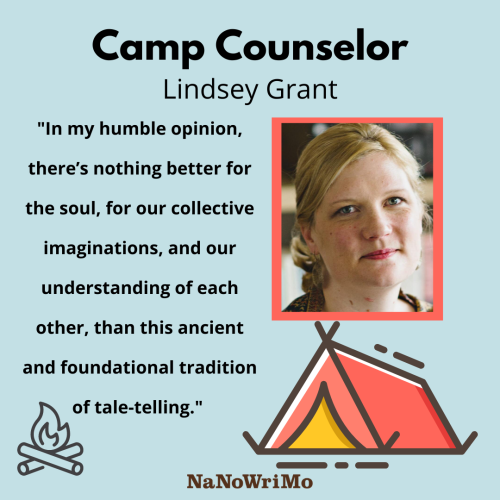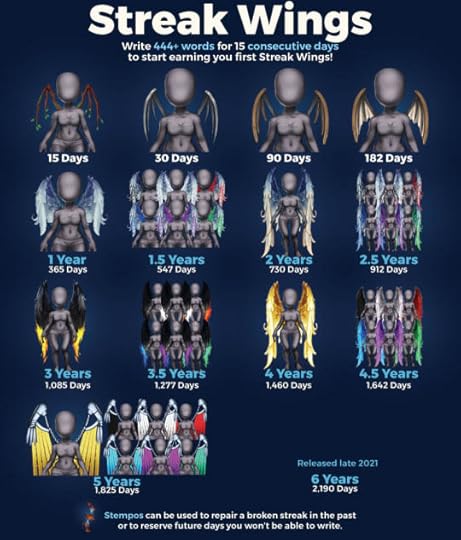Chris Baty's Blog, page 36
July 14, 2021
Handling Rejection

Every great writer will come across rejection at some point, so what then? Nichelle Wong shares her piece on how to handle rejection based on her own personal experiences.
So you’ve done it. You’ve sent in the application, submitted the piece, started the blog. You’ve overcome what you’ve thought was the abyss —the fear, the procrastination—and finally started on your hero’s journey. You’ve tried your very best, and now you sit back and wait to reap the results. But then…
Your application gets rejected. Actually, all 6 of them get rejected. Your piece doesn’t even make it to the honorable mentions. Your blog averages one view a week, probably from your distant relative or one friend.
You’re shattered. Where’s the result of everything you’ve worked for? You were going to be a shining star, but now you’ve sunk way below the horizon.
If you have a parent or friend that understands and supports you, great for you. But the vast majority of us are surrounded by people who will awkwardly pat our backs, avoiding eye contact as they mumble, “Better luck next time.” Or well-intentioned do-gooders who lecture us on the trials of life and the necessity of not giving up.
Obviously, there’s truth in that. But you know what? Screw that.
You’ve just lost everything you’ve worked for. Even if it’s just one contest, you sent a piece of yourself out to the world, and the world rejected it. And that sucks. People will tell you it’s not a personal rejection, but it sure feels like one. It feels like you’ll never get anywhere with your writing.
I’m speaking from experience, obviously. If you don’t feel that way, congratulations. You’ve achieved something very difficult for a good many of us. But my guess is that most writers aren’t like that.
Failure sucks. It’s probably one of the worst feelings in the world. Emotional pain is actually shown to activate the same brain regions as physical pain.
Don’t let people tell you what to feel and what not to. Don’t let people say that it’s not a personal rejection. That you shouldn’t be upset. That you should move past this.
Cry. Or write a rage poem. Or cry while you’re writing a rage poem. If it sucks, you can rip it up afterward. If it doesn’t suck, you can let it sit until you’re emotionally stable enough to look back and edit. (And then maybe submit again…aka set yourself up for more rejection. Oh, the horror.) Eat chocolate. Watch cat videos. Do whatever coping mechanism helps you destress.
And then once you’ve allowed yourself to run the gamut of emotions, once you’ve gone through the day moping and weeping and annoying the heck out of whoever lives with you, pause.
Think about your wonderful submission going through that editorial pipeline. Think about how somebody read that piece, maybe even several somebodies. Think about how your piece took up time in their lives. How, even if only for a second, it changed them in some way.
True, it could have been in a bad way. Maybe they read it and were like, “This piece is trash” and rejected it as soon as they skimmed it. But you have no idea what they did. Maybe somebody read it and thought, “Hey, this is good” but they weren’t high enough up the editorial pipeline to have any influence. Or maybe they reflected back on their own writing. Maybe they thought about the times they wrote like you, too, and the times they got rejected, too, and they were sorry when they had to make the final decision. Because the editor on the other side is a human. And humans are swayed by all sorts of mysterious powers to make their choices.
If you get anything out of this, it’s that you should always write to leave the audience with something. So even if an editor thinks your piece is an utter garbage dump (which I highly doubt they will), they’ll at least come away knowing more than they did before. And that means the piece will stick in their head. And maybe one day they’ll pick it up again and think, “Hey, this piece is actually not bad. I wish I hadn’t rejected it."
Or maybe one day, you’ll pick up the old piece and realize, “Hey, I write so much better than this now.” That, perhaps, is any writer’s ultimate vision of success.

Nichelle Wong is a high school student from the Bay Area. She’s participated in two NaNoWriMo challenges and finished exactly one of them. Though she regularly submits to outside writing contests, she’s mainly published in her school’s literary collections. Aside from writing, she enjoys reading, learning about psychology, and sketching.
Top Photo by Steve Johnson on Unsplash
July 13, 2021
Thinking Like a Memoirist: 5 Ways to Get Into Your Real-Life Story

Our newest track for July’s Camp NaNoWriMo session is full of fantastic resources for anyone who wants to write about their own life! Today, Lindsey Grant, Camp Counselor and author of the new book
Ready, Set, Memoir!
shares a few ways that writing a memoir can be fun and creative:
A memoir is the intersection between your life and a specific subject. It’s not your whole life from birth to the present moment, (though select moments spanning that timeframe will surely be included). Instead, it’s those places where your life has intersected or been defined by the subject of your memoir. And the possibilities for what that subject might be are truly endless. One way to think about how to focus your memoir is to think about something in your life that forever changed you, creating a “before” you and an “after” you. Bonus good news: No two memoirs could ever be the same, either, because that combination of topics, your life plus your memoir-worthy experience, is singular to you.
2. Trust your truth.Because memoirs are nonfiction, they must be true. Thus, the subject of your memoir will cover an experience or relationship you had, something you’re passionate about, or a pivotal life-changing event, for example. Many people wonder how they are expected to remember events, conversations, and feelings exactly as they happened (especially if this was a really long time ago) and that’s a valid question.
The answer is that your reader knows you can’t possibly remember every detail; instead, you’re sharing your recollections. How you remember feeling, what the sequence of events was, and the impressions you have of that time and place and the people in it. That’s your truth, and it’s yours and yours alone to recount as it exists in your mind’s eye.
Since memory is so imperfect and incomplete, sometimes it’s helpful to do a deep dive into the past to help you remember details you’ve long since forgotten. Depending on what you’re writing about, such research could include family photo albums, a tour through your hometown, paging through old yearbooks or journals or memory boxes, reading news archives from the timeframe you’re writing about, or even watching favorite films and listening to favorite music from that time. Think of it as a field trip into your past!
4. Get your story straight.There are two timelines you’ll want to reference when writing a memoir: the order of events as they happened in real life, and then the order in which you include events in your memoir. Of course, your memoir can be written chronologically, but if you do choose to jump through time in achronological fashion, it’s helpful to first establish the order of events you’re including as they really occurred, and then craft your story’s timeline. For you pantsers out there, this will probably be most useful to you after your first draft is complete and you start to stare down the editing process. For you plotters, this is a terrific way to help structure your writing! And plantsers, I trust you’ll find the perfect middle ground in which to write your somewhat-outlined-but-not-set-in-stone story.
5. Utilize fictional story elements.Even though memoirs are nonfiction, they contain the same building blocks as most novels: characters, story arc, conflict, a central theme, dialogue, setting, and so on. If you feel lost in what to write or how to write it, fall back on the approach you’d take to writing these story fundamentals when noveling. What does your main character want more than anything else? What will they do to get it? How do they change over the course of the story? What makes them likeable? What is their greatest weakness? Who are their friends and why? Any enemies? You get the idea. These familiar story components will make memoir-writing feel less strange and new and hopefully trigger all kinds of inspiration and realizations about your true-life tale.
Write on, memoirists!
Check out NaNoWriMo’s Camp Memoir resources.
Take a look at Lindsey’s new book, Ready, Set, Memoir!
Lindsey Grant is the former Program Director for NaNoWriMo. She holds an MFA in Creative Nonfiction and English from Mills College in Oakland, California. Though she lived in the San Francisco Bay Area for nine glorious, sun-drenched years, she originally hails from Atlanta, Georgia. You’d know she’s a Southerner at heart by her liberal use of the word “y’all” and her belief in casseroles as a form of damage control. She currently lives in Zurich, Switzerland with her husband and their cats, where she cooks often, tries to speak German, and blogs about her attempts to assimilate.
July 12, 2021
“A writer often writes because they feel they have to, for some...

“A writer often writes because they feel they have to, for some reason or another, but a storyteller writes because they have a hundred stories sitting inside them, waiting to burst. At the end of the day, you should write because you want to tell this story, because you need to tell this story, because there’s no way you can keep going without telling this story.”
Tashie Bhuiyan is a Bangladeshi American writer based in New York City. She recently graduated from St. John’s University with a bachelor’s degree in Public Relations, and hopes to change the world, one book at a time. She loves writing stories about girls with wild hearts, boys who wear rings, and gaining agency through growth. When she’s not doing that, she can be found in a Chipotle or bookstore, insisting 2010 is the best year in cinematic history. (Read: Tangled and Inception.)
Your Camp Care Package is brought to you by Camp NaNoWriMo. Sign up to receive more Camp Care Packages at nanowrimo.org ! Thank Tashie for her Camp Care Package!
Image description: A graphic with a blue background and a red tent, campfire image, and NaNoWriMo logo. It includes a headshot of Camp Counselor Tashie Bhuiyan, and includes the quote text, “A writer often writes because they feel they have to, for some reason or another, but a storyteller writes because they have a hundred stories sitting inside them, waiting to burst. At the end of the day, you should write because you want to tell this story, because you need to tell this story, because there’s no way you can keep going without telling this story.”
#campnanowrimo #nanowrimo
Keep Calm and Keep Writing

Worried about your writing slump disturbing your story? Anna C. has given us her techniques as a young writer whenever she needs to keep herself writing.
Hey guys! Ready to face another long month of writing? I know some of you guys are super excited, and some of you are kind of-(you know, groaning and being desperate for ideas…) Lucky for you all, I got some keen advice. If these tips don’t work out for you, it’s totally fine. These are some things that I do to “Keep Calm and Keep Writing”.
1. Listening to music.
Who doesn’t have crying little sisters, loud vacuums, and your older sibling’s friends yelling at you to refill their tub of popcorn? I know I have plenty of these scenarios. When I put on my earbuds, open Spotify, and play my favorite songs, I can settle. Music helps me to calm down, even if there’s lots of chaos around me. Sometimes humming along helps.
2. NOT write an outline.
I know, right? Sounds crazy! But for me, my hands run smoothly when there are no barriers. Of course, occasionally, I would write down a few details (like characters and places), but other than that, I just write down what comes to my head. If I think about narwhals, singing, and golf balls? I would write down that special narwhals would play golf by singing. Sounds pretty silly, but it’s super practical. This helps me to write a story that even I would never be able to imagine.
3. Write stories with what you like, or enjoy.
Ever mashed up monkeys with the Titanic before? I think not. Well, monkeys are my favorite animal, and the Titanic is my favorite ship (the event I would say, but we shall go with ship). If I put these two together, I’m pretty sure this is going to turn out into an interesting story. Again, I would be able to write a story that even I wouldn’t be able to think of in my dreams.
4. Taking a book break.
Every hour or so, I take a break from the computer and sit down to read a nice trusty book. About 1/3 of my ideas come from other books. Most of my books are probably FanFiction books. Sometimes I merge my own story with an extremely popular book. The result? Euphoria.
5. Using lots of detail and advanced vocabulary.
Bland sentences are what I start with. You know, for the drafts. The second time I go over the writing piece, I upgrade everything. This is what it looks like:
“I do not like dancing,” Sarah said.
→
“I absolutely despise dancing,” Sarah remarked.
See? By changing a few words, the sentence seems polished and new.
6. Revising other people’s writing.
I do this with my parents, or with my friends. Every week, we check each other’s progress and give tips n’ comments. By reviewing other people’s work, I learn a lot of things. I learn things like new words, new sentence construction, and even self-tips to improve my own writing.
Well, good luck fellow writers. Even if you can’t see us physically, the NaNoWriMo community is cheering you on! All of us here behind the screen are rooting for you to finish your novel (or at least start it). So, stretch your fingers, get a warm cup of milk beside you, and get writing!
Anna C. is a 12-year old that has a passion for writing, reading, and paddleboarding. If she’s not working on homework and schoolwork, she spends her free time writing fictional short stories. Anna is currently typing up a short novel called “Mysteria”.
Top Photo by Danielle MacInnes on Unsplash
July 8, 2021
“Thanks, writer, for helping fill the world with stories....

“Thanks, writer, for helping fill the world with stories. In my humble opinion, there’s nothing better for the soul, for our collective imaginations, and our understanding of each other, than this ancient and foundational tradition of tale-telling. Your bravery in committing your novel to the page is actually making this beautiful, complicated world a better place. Bravo.”
Lindsey Grant is the former Program Director for NaNoWriMo. She holds an MFA in Creative Nonfiction and English from Mills College in Oakland, California. Though she lived in the San Francisco Bay Area for nine glorious, sun-drenched years, she originally hails from Atlanta, Georgia. You’d know she’s a Southerner at heart by her liberal use of the word “y’all” and her belief in casseroles as a form of damage control. She currently lives in Zurich, Switzerland with her husband and their cats, where she cooks often, tries to speak German, and blogs about her attempts to assimilate.
Your Camp Care Package is brought to you by Camp NaNoWriMo. Sign up to receive more Camp Care Packages at nanowrimo.org! Thank Lindsey for her Camp Care Package!
Image description: A graphic with a blue background and a red tent, campfire image, and NaNoWriMo logo. It includes a headshot of Camp Counselor Lindsey Grant, and includes the quote text, “In my humble opinion, there’s nothing better for the soul, for our collective imaginations, and our understanding of each other, than this ancient and foundational tradition of tale-telling.”
July 7, 2021
3 Tips for Staying Motivated

Maybe some of us need some motivation, especially as we continue our drafts during CampNaNoWriMo. Ava Lofty has offered her best advice on what someone should do to get their motivation back.
After a long day, you finally sit down at your desk, a mug of tea in hand. It is finally time for you to work on your novel. You open up your computer and bring up your book draft, ready to bring your story to life. Your hands hover over the keyboard. You stare at the screen for a long while. Suddenly, the blank page in front of you seems far too big, and you find yourself devoid of ideas. Where did your motivation go?
Staying motivated is hard. Many people, when they lack motivation, end up forever leaving their drafts unfinished. Writing a book is a challenge. It can seem like an unachievable task. What happens if you lack motivation? What should you do? Well, the one thing you shouldn’t do is give up writing your story. If you want to be a writer, you have to write.
Here are some tips that have helped me regain my footing when I have reached standstills in the past.
1. Take a break
This piece of advice might seem counterproductive. Why should you get away from your book if you need to be working on it? Taking a step back away from your book can often lead to breakthroughs. Get outside, go visit with a friend, read a book, or even watch some TV. Inspiration can strike out of nowhere. At the end of the day, come back to your document. See if you can put words to the page again.
2. Change things up a bit
Try writing somewhere else. Add a new side character based on someone you talked with recently. Mix in current events or things you are passionate about into your writing. The sky is the limit! Even if you end up disliking what you write down in your first draft, you can always go back and edit it later. You cannot edit and improve your book if the words are not even written in the first place!
Lack of motivation can come from writing a chapter you are not excited about. Against popular opinion, you do not have to go in sequential order. When I was writing my first book, I started working on the last chapter and made my way back to chapter one. While it might seem odd to jump around, it can be beneficial. It can help you keep writing. If you have a scene you are itching to write, why not write it down now?
3. Look at the short-term, not the long-term
Writing a book can be overwhelming at times. You might look at your document and realize how much work is needed to finish the first draft. The draft itself will still need countless hours of rewriting and revamping, even when completed. If you sit and dwell on all the details, you will get overwhelmed. This is why it is crucial to set short-term goals as well as long-term ones. If you only plan to finish writing your book, it will be a challenging goal to tackle. Instead of focusing on the big picture, focus on the short-term. What is a reasonable daily word-count goal?
By figuring this out, you will be less likely to get overwhelmed by the idea of writing a book. As long as you hold yourself to your short-term goals, you will be able to finish your story.
I hope you use some of these tips to keep motivated. I can’t wait to read your future books one day!

Two-time NaNoWriMo participant Ava Lofty is the self-published author of the Loftia Legends YA series. When not writing, she can be found reading, drawing, or binge-watching her favorite Netflix shows. She lives in Arizona, where she attends school. She is currently working on her 5th novel entitled Loftia Legends: A Fallen Star. You can find Ava on Instagram as @avalofty, and her website is www.loftia-legends.com.
Top Photo by Ahmed Zayan on Unsplash
Staying Motivated

Maybe some of us need some motivation, especially as we continue our drafts during CampNaNoWriMo. Ava Lofty has offered her best advice on what someone should do to get their motivation back.
After a long day, you finally sit down at your desk, a mug of tea in hand. It is finally time for you to work on your novel. You open up your computer and bring up your book draft, ready to bring your story to life. Your hands hover over the keyboard. You stare at the screen for a long while. Suddenly, the blank page in front of you seems far too big, and you find yourself devoid of ideas. Where did your motivation go?
Staying motivated is hard. Many people, when they lack motivation, end up forever leaving their drafts unfinished. Writing a book is a challenge. It can seem like an unachievable task. What happens if you lack motivation? What should you do? Well, the one thing you shouldn’t do is give up writing your story. If you want to be a writer, you have to write.
Here are some tips that have helped me regain my footing when I have reached standstills in the past.
I. Take a break
This piece of advice might seem counterproductive. Why should you get away from your book if you need to be working on it? Taking a step back away from your book can often lead to breakthroughs. Get outside, go visit with a friend, read a book, or even watch some TV. Inspiration can strike out of nowhere. At the end of the day, come back to your document. See if you can put words to the page again.
II. Change things up a bit
Try writing somewhere else. Add a new side character based on someone you talked with recently. Mix in current events or things you are passionate about into your writing. The sky is the limit! Even if you end up disliking what you write down in your first draft, you can always go back and edit it later. You cannot edit and improve your book if the words are not even written in the first place!
Lack of motivation can come from writing a chapter you are not excited about. Against popular opinion, you do not have to go in sequential order. When I was writing my first book, I started working on the last chapter and made my way back to chapter one. While it might seem odd to jump around, it can be beneficial. It can help you keep writing. If you have a scene you are itching to write, why not write it down now?
III. Look at the short-term, not the long-term
Writing a book can be overwhelming at times. You might look at your document and realize how much work is needed to finish the first draft. The draft itself will still need countless hours of rewriting and revamping, even when completed. If you sit and dwell on all the details, you will get overwhelmed. This is why it is crucial to set short-term goals as well as long-term ones. If you only plan to finish writing your book, it will be a challenging goal to tackle. Instead of focusing on the big picture, focus on the short-term. What is a reasonable daily word-count goal?
By figuring this out, you will be less likely to get overwhelmed by the idea of writing a book. As long as you hold yourself to your short-term goals, you will be able to finish your story.
I hope you use some of these tips to keep motivated. I can’t wait to read your future books one day!

Two-time NaNoWriMo participant Ava Lofty is the self-published author of the Loftia Legends YA series. When not writing, she can be found reading, drawing, or binge-watching her favorite Netflix shows. She lives in Arizona, where she attends school. She is currently working on her 5th novel entitled Loftia Legends: A Fallen Star. You can find Ava on Instagram as @avalofty, and her website is www.loftia-legends.com.
Top Photo by Ahmed Zayan on Unsplash
July 6, 2021
Worldbuilding Summer Camp— the Ultimate Rebel Goal!

Every year, we’re lucky to have great sponsors for our nonprofit events. World Anvil, a 2021 NaNoWriMo sponsor, helps you develop and organize your characters, plot, and world setting. Today, World Anvil is here to share some exciting news about their latest worldbuilding challenge!
If you’re looking for a rebel goal for Camp NaNoWriMo, or just want to try something new, why not check out World Anvil’s worldbuilding summer camp? It’s a free, online event to inspire you, help you build out your novel setting, and you can even win prizes!
What is Worldbuilding Summer Camp?Worldbuilding Summer Camp is a free, online community event run by World Anvil—the biggest worldbuilding software and community out there—in July of each year. During the month, you’re challenged to complete 31 worldbuilding prompts, flesh out your novel setting, and think in original ways about your worlds.
The summer camp isn’t competitive—the aim, like NaNoWriMo, is completion. If you complete 10 prompts or more, you’ll win a digital badge, and have a chance to win books and prizes in the sponsored prize draw too! It’s a wonderful way to get inspired, whether you’re starting a new novel setting from scratch, or trying to build a deeper, more authentic-feeling space for an existing story.

Complete 10, 20, 30 or all 31 prompts during Worldbuilding Summer Camp, and you’ll win a badge on your profile—and you might win a prize too!
Sounds great! But will these prompts work for me?The prompts are carefully crafted by professional authors to work for any genre and kind of world. If you’re curious, you can check out the prompts from previous worldbuilding summer camp events here.
The first of this year’s prompts go live on the challenge page on 1st July (8pm UK, 12pm Pacific). They’ll be released in waves to prevent burn out or overwhelming people—so check again on the 10th, 20th and 30th July for the next installments.
How do I take part in Worldbuilding Summer Camp?All you need to participate is your imagination and a free World Anvil account! (It’s easy to sign up, you won’t get newsletters, and you don’t need to provide credit card info.) For the full instructions and rules, check out this year’s Worldbuilding Summer Camp page.
And if you want to get more involved, World Anvil’s community is the friendliest place on the internet! You can join the Discord to chat with other participants, watch community live streams, and even see how others have tackled the same prompts in different worlds.
Whatever you do this July Camp NaNoWriMo, whether it’s Worldbuilding Summer Camp or another rebel goal, I wish you all the inspiration and success!
July 2, 2021
3 Tips For Making Writing More Fun

Every year, we’re lucky to have great sponsors for our nonprofit events. 4theWords, a 2021 Camp NaNoWriMo sponsor, is a writing app that uses monsters, quests, global challenges, and epic rewards to motivate your writing. Today, they’re here to share some ways that gamefying your writing can help you reach your goals:
Writing can be both rewarding and challenging. Most of the time, writing is an expression of creativity that makes us feel alive. At other times, getting words down feels like climbing a mountain. On those days, you might try almost anything to write. So we’ve come up with a few tips to help you make writing more fun.
At 4thewords we’re all about making writing more fun. Our online writing game helps you write more using gamification principles like monsters, leveling up, item rewards, quests, and a fully immersive world to explore. We want to make writing easy, fun, and rewarding for our community—all while helping you achieve your word count goals and get into a writing habit.
1. Break Down Your GoalsWith writing, you might get overwhelmed by the big picture. How are you supposed to write an entire book? The same way you eat an elephant—one bite at a time. Instead of focusing on and fretting over the idea of writing an entire book, just focus on meeting a daily word count. By breaking your goals down into more manageable chunks, it’ll be easier for you to achieve them. You can break your goal into incremental steps and use something like sticky notes to see how far you’ve come. If you set one sticky note to equal your daily word count, it won’t be long before you cover your wall in a sea of sticky notes. At 4thewords we make it easy to track your writing progress and help motivate you with streaks, we have streak wings you can equip on your Avatar for keeping a writing streak (fun fact: our longest streak is over 5 years and running!)
 2. Reward Your Progress
2. Reward Your ProgressAlong with breaking bigger goals into small parts, reward yourself whenever you reach those goals. As far as rewards go, think simple—even the promise of your favorite treat or purchasing a book you’ve had your eye on can work. Rewards are an important part of our strategy at 4thewords so if you want help finding some rewards dressing up your avatar and decorating your house with writing rewards might do the trick. By defeating monsters, you get rewarded with loot and can not only complete quests but also purchase special wardrobe items to accessorize your avatar. 4thewords offers limited-time special events with special rewards, so keep an eye out for those as well.
 3. Get Creative
3. Get CreativeDon’t be afraid to get creative with your writing goals! Instead of telling yourself, “I have to write 500 words today,” say, “I must defeat the Poison Dragon today!” Or “I must write 500 words to save my city!” Writing in 4thewords gives you the opportunity to personify your goals and visualize them as monsters for you to slay. We turn the creative process into an adventure that keeps you focused and engaged. If you’re struggling with a challenging scene, figure out how many words you need to write that scene, equate them to a monster, and fight (we have over 400 unique monsters and our world grows larger every month)!
No matter how you choose to make your writing fun, 4thewords is here to help you reach your writing goals. Give us a shot with a 30-day free trial and discover the most entertaining way to make daily writing a habit and finish writing your novel.
Best of luck slaying your poison dragons and best of luck this Camp with your words, Wrimos—we hope you have a fantastic camp!
PS: If you use the special code “wrimocamp” when signing up or on your Account Page, you’ll get an extra free month of subscription time!
June 30, 2021
How to Win Nano with a 40-Hour Work Week

It seems like there’s never enough time as a writer, especially working full-time. Don’t worry though, as NaNo guest Brittany Bustos shares her secrets for managing NaNo and her 40-hour workweek:
I know there are many of us out there, people who love to write but spend forty hours of their week in an office, not being able to set aside time to work on their project. Thankfully, I’m lucky to have a wonderful support system at home and through trial and error, have created a list of tips for those who are curious about Nanowrimo, but fear that their day job will mean they won’t have enough time.
1. Set aside a dedicated time to write.
This can be bright and early at 6 in the morning or as late as 10 at night. But make a dedicated time every single day of November to work. And try your hardest to use that time for only Nano. Emily from the LA region uses an alarm as a reminder to write every day, and I think that is a great idea to keep yourself accountable. Even if your workday is stressful and busy, set aside time to write. It might even be that stress reliever you needed after a long day.
2. Try sprinting to get a lot of words in a little time.
Sprinting in writing is similar to how you picture a runner sprinting - it’s when you write continuously, as much as you can in a set amount of time. You go fast. I’ve written over 500 words in 15 minutes during a sprint. You’re probably thinking to yourself, “But how can I process thoughts when I’m focused on typing?” And truthfully, you don’t. You let your stream of consciousness put the words on the page. And try as hard as you can to ignore the backspace button. Your focus is to get words on a draft, editing can come later!
3. Try and come prepared with a general plan of what you’re going to work on.
When you are fishing for time to write, there’s not much time to sit and think. If you are a planner or pantser or somewhere in between, I encourage you to jot down your “game plan” for what you are going to work on after a session of writing so that you can easily jump into your project the next day.
4. “Get out of your head. Don’t overthink it, don’t ponder and stew. Write.” – Julie, ML, Los Angeles region.
I love this advice from one of my community friends to round out this list. At the end of it all, November is a time to draft. Not draft and hope it’s ready for publication in December. Just draft. You don’t have a lot of time to think or reconsider, you need to get all of your ideas out now. Once November ends, you can do whatever you please in terms of editing and finishing, but your ultimate goal for November is to write 50,000 words and have some fun along the way. So if you are writing a sentence but second guessing if it truly belongs, then come back to it another time and add those words as a part of your goal for the month.
There you go! Four tips that will help you win Nanowrimo with a busy schedule. I know it might sound daunting, but Nanowrimo has helped me so much with relieving stress after a long workday, I couldn’t imagine a month without it. And if you are unsure if you will make the time, reach out to your region’s MLs to find a write-in that works well with your schedule.

Brittany Bustos (@helloimbea) is a writer from the California, East Bay region. She has participated in Nano since 2019 and loves to write Young Adult and Romance. She has previously published poetry and plays through academic and local publications. When not participating in Nanowrimo and Camp Nanowrimo, she is constantly reading (to find out what she reads you can follow her Bookstagram @brittmariereadshere) and spending time with her partner and cat, Princess Peach.
Top Photo by Brett Jordan on Unsplash
Chris Baty's Blog
- Chris Baty's profile
- 63 followers



